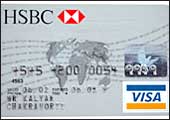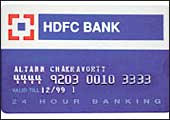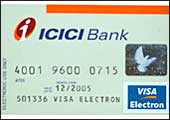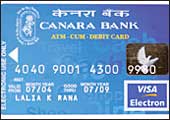|
 On
December 20, 2004, when reliance industries (RIL) Chairman and Managing
Director Mukesh Ambani announced his company's intention to buy
back shares from investors up to an amount not exceeding Rs 2,999
crore, it was not an entirely unexpected move. For a month at the
time, the company had been embroiled in a controversy over ownership
issues between Mukesh and his younger brother, RIL Vice Chairman
and Managing Director Anil, which had beaten the RIL stock down,
eroding 10 per cent of its market capitalisation. The announcement-which
offered to buy back shares at a price not exceeding Rs 570, a premium
of nearly 20 per cent over the then stock price of Rs 480, and was
aimed at what the company called its "desire to maximise returns
to investors and enhance overall shareholder value"-helped
RIL's stock recover to Rs 530 over the next 10 days, restoring investor
confidence to some extent. On
December 20, 2004, when reliance industries (RIL) Chairman and Managing
Director Mukesh Ambani announced his company's intention to buy
back shares from investors up to an amount not exceeding Rs 2,999
crore, it was not an entirely unexpected move. For a month at the
time, the company had been embroiled in a controversy over ownership
issues between Mukesh and his younger brother, RIL Vice Chairman
and Managing Director Anil, which had beaten the RIL stock down,
eroding 10 per cent of its market capitalisation. The announcement-which
offered to buy back shares at a price not exceeding Rs 570, a premium
of nearly 20 per cent over the then stock price of Rs 480, and was
aimed at what the company called its "desire to maximise returns
to investors and enhance overall shareholder value"-helped
RIL's stock recover to Rs 530 over the next 10 days, restoring investor
confidence to some extent.
It isn't just Reliance, though (see The Real
Picture for more buyback examples), and it isn't just about propping
up stock prices either. Companies the world over, not just in India,
resort to stock buybacks for a variety of reasons, and through various
avenues.
How Buybacks Work
According to regulations of the Securities
and Exchange Board of India (SEBI), India's stock market regulator,
companies can buy back their shares from existing shareholders on
a proportionate basis either through tender offers or from the open
market. Buyback schemes through stock exchanges are open for a year.
As for tender offers, shareholders receive tender/ offer forms from
the company. Intimation about acceptance of shares is sent within
15 days of closure of the offer, and share certifications or cash
(whatever the case may be) is sent within 21 days from the closure
date.
One situation when companies go for a buyback
offer is when there is surplus cash flow and no immediate need for
cash to fund expansion plans. A buyback makes better sense for such
a cash-rich company than, say, investing the cash in unrelated diversifications
that may result in losses in the long run. Then, once a company
buys back a certain number of shares, the outstanding shares in
the hands of investors come down, leading to a rise in its stock
price. A buyback is also an opportunity for promoters of a company
to strengthen their stake in the company, reducing the chance of
a hostile takeover.
What You Get
In most cases, a buyback offer results in a
win-win situation for investors. One exception is when a company
wants to buy back its shares in order to delist from stock exchanges,
leaving investors with no option but to sell their shares. Companies
that have delisted in the past include Hoganas India, E-Serve, Wartsila,
Reckitt Benckiser, Madura Coats and Cadbury.
In all other cases, however, buybacks offer
benefits for both those who sell their shares as well as those who
don't. Those who stay with the company benefit, as earnings get
better. Says Rohit Srivastava, Market Strategist, Sharekhan: "The
drop in the floating stock of a company and increase in its earnings
can enhance valuations significantly." Then, if a company looks
to have good growth prospects, there is no reason why shareholders
shouldn't stay with the company. The only hitch? "Investors
need to have a long-term approach as the holding period is longer,"
explains Jigar Shah, Vice President, KR Choksey Shares & Securities.
Also, excessive cash on the books is not seen
as a healthy financial policy since it has a sluggish effect on
the return ratios. Once cash reserves are diluted after a buyback,
return ratios improve. And this augurs well for the company and
its shareholders. Shareholders who stick to a company also benefit
from a relative increase in their stake in the company. As for those
who choose to exit, the obvious gain is the cash they receive (which
is generally at a premium over prevailing stock prices). There is
a catch, however. Whatever profit you make (the difference between
the price you bought the share in and the value you get from the
buyback) is subject to capital gains tax. So check first if the
premium is more than the tax outflow; if not, it would be a better
idea to sell the shares in the open market or, alternatively, hold
on to your shares.
Among companies with buyback offers currently
active are Reliance and Procter & Gamble. Investors should stay
with Reliance since it is still undervalued and has good growth
potential; as for P&G, after its proposed merger with Gillette
goes through, its stock valuations are likely to get better. So,
stick around. As a guiding principle for buyback offers, don't let
just the premium lure you into selling shares. Assess the company's
growth prospects, and your tax liabilities, first.
Credit
Or Debit?
Debit cards and credit cards provide you similar
functionality, albeit differently. How do you choose between the
two?
By Shilpa Nayak
The
last time you bought your monthly groceries, how did you pay? Chances
are, through your debit card. And when you bought that high-end
plasma TV? Credit card, most likely. For most of us, plastic money,
as in debit and credit cards, bring a high degree of flexibility
and convenience. Of course, it's anyday safer to carry these plastic
thingamajigs than wads of notes in your pocket. And while credit
cards need to be acquired, debit cards have become common thanks
to banks' policy of providing every new savings account holder with
the ubiquitous atm card that doubles up as a debit card.
While both provide a similar, basic function-enabling
purchases without ready cash-they do it differently. Credit cards
behave like a moneylender; when you make a purchase, you have to
pay back the billed amount to the lender (which is a bank) within
a specified period (normally 40 days), else interest mounts on the
amount. That can be pretty telling, with banks charging up to 40
per cent interest per annum. Debit cards, on the other hand, behave
like a mobile savings account, where the purchase amount is straightaway
deducted from the savings account that the card links up to.
Now, picture this: as you stroll by a mobile
phone showroom, the latest Nokia 7710 catches your fancy, and proves
too lucrative for you to pass by. But with a price tag of around
Rs 30,000, it isn't something you'd buy using your debit card, and
have a hole drilled into your savings account. Such impulsive and
high-ticket purchases are where credit cards really show their value;
payment can be deferred till the due date, and if you have the ability
to handle the interest rates, perhaps even rolled over for a longer
duration. Debit cards, on the other hand, are useful for small-value
buys such as groceries or gas refills. Explains V. Vaidyanathan,
Senior General Manager and Country Head (Retail Business), ICICI
Bank: "Typically, debit and credit cards together encompass
the entire spectrum of customer spends."
This is, of course, assuming that you have
both cards, and given their distinctly different spending patterns,
there's no reason why you shouldn't. "Customers should have
both cards and use them according to their cash flow and nature
of transactions," says Amresh Acharya, Vice President and Head
(Retail Liabilities), HDFC Bank. Having said that, however, cases
can also be made out for having just one of the two:
- If you are the forgetful kind who is likely
to have trouble keeping track of credit card bills, debit card
is what you should be charging your expenses to.
- For the jet-setting executive type whose
company foots the bill for expenses incurred, credit card is but
a natural choice.
- Once your salary comes into your account,
you stash it away into deposits and other investments, and maintain
a minimal savings account balance. If that sounds like you, debit
cards are not of much use; go for credit cards.
- If credit card companies refuse to give
you a card due to your nature of job or low salary and so on,
you don't have much choice but to go with debit cards.
- If you have a reasonable bank balance at
most times, you can use the debit card more often, at least for
recurring expenses.
Whichever suits your profile, you will do well
to inculcate a safety-first approach. That is, maintain a reasonable
savings account balance for debit cards, and pay back credit card
dues in time. Otherwise, even plastic money has a propensity to
explode in your face.
|




 O
O


